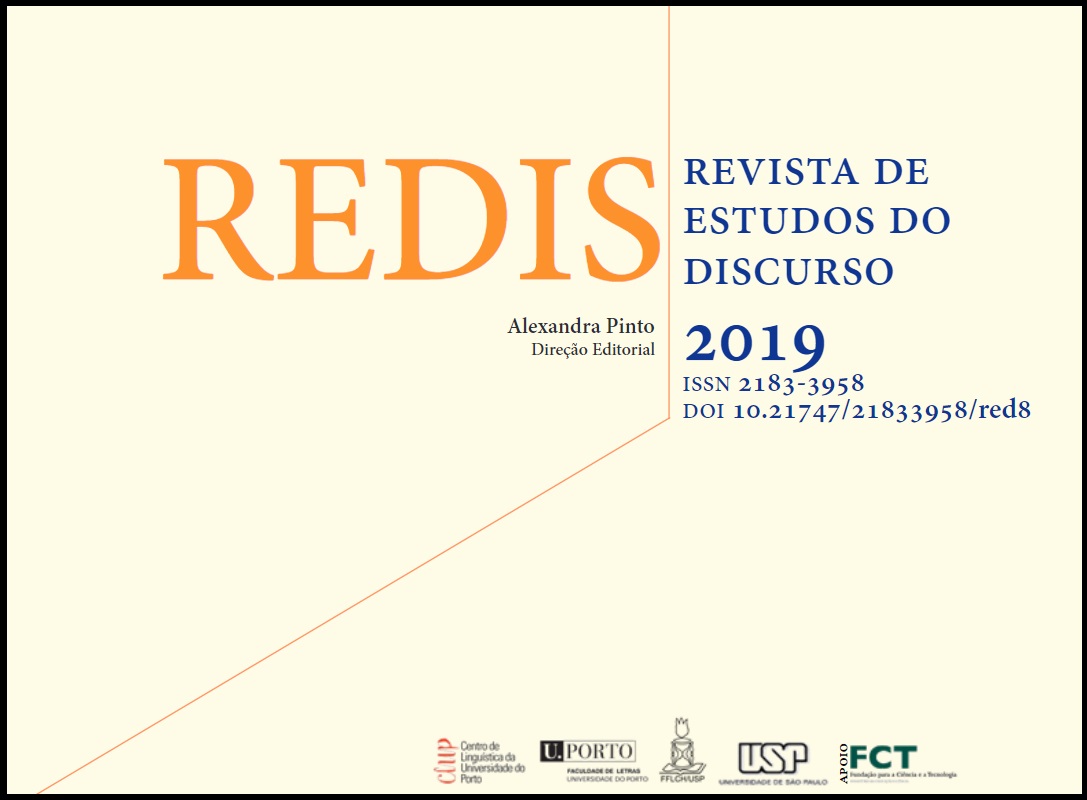Constitution and argumentation: the social function of rural property
DOI:
https://doi.org/10.21747/21833958/red8a8Keywords:
Argumentation, Vagueness, Federal Constitution of Brazil, Social Function, Rural PropertyAbstract
This paper presents a study of Articles 184, 185 and 186 of the Brazilian Constitution in order to identify, describe and analyse the senses and the argumentative orientation found in such articles regarding to the social function of rural property and its legal implications. We will investigate what the legislator’s choices indicate, when establishing expropriation for the purposes of agrarian reform, (Art 184), defining the properties that are susceptible to expropriation (Art.185) and establishing what concerns the fulfilment of the social function of the agricultural property (Art.186). The analyses are based on studies of the Theory of Argumentation in Language, postulated by Ducrot (1884) and by Anscombre & Ducrot (1997). For Ducrot, the argument is in the language. The words of the language bring in themselves an argument that guides the discourse and the linguistic choices entail an argumentative orientation. The study is also supported by authors who deal with agrarian law (Carrozza and Zeledón, 1990; Scaff, 2005; Bueno, 2017) and the vagueness of the legal norm (Santos, 2002). The analysis of the linguistic marks of the mentioned articles allows to observe that the vagueness of the senses implies incoherence in the argumentative orientation of the constitutional text and can have negative consequences for the decidibility in concrete cases.
References
Anscombre, J.-C. & Ducrot, O. (1997). L’argumentation dans la langue. Troisième édition. Liège: Mardaga.
BRASIL. Constituição da República Federativa do Brasil, 1988. Promulgada em 05 de outubro de 1988. Disponível em:
BRASIL. Lei n° 8.629, de 25 de fevereiro de 1993.Dispõe sobre a regulamentação dos dispositivos constitucionais relativos à reforma agrária, previstos no Capítulo III, Título VII, da Constituição Federal. Diário Oficial da União, Brasília, DF, 26.02.1993. Disponível em http://www.planalto.gov.br/ ccivil_03/LEIS/L8629.htm. Acesso em: 08 de fevereiro de 2019.
Bueno, F. G. (2017). Contratos Agrários Agroindustriais. São Paulo, Almeidina.
Bueno, F. G.; Tinoco Cabral, A. L. (2019). A função social do imóvel rural na constituição da república federativa do brasil de 1988. In: CABRAL, Ana Lúcia Tinoco; Bueno, Francisco de Godoy (Org.) Direito e linguagem a constituição de 1988. Londrina: Thoth, pp. 199-215.
Tinoco Cabral, A. L. (2016). Negação, intersubjetividade e polifonia: estudo de caso em processos civis. Letras de Hoje, Vol. 51, n. 1. vol 51 n.1, pp 55-64. Disponível em http://revistaseletronicas.pucrs.br/fo/ojs/index.php/fale/article/view/21556/14337 (acesso em 18/09/2018)
Carrozza, A. & Zeledón, R. (1990). Teoría general e institutos de derecho agrario. Buenos Aires: Astrea.
Chierchia, G. (2003). Semântica. Trad. Luiz Arthur Pagani, Lígia Negri, Rodolfo Ilari. Campinas: Editora da UNICAMP.
Costa, A. S. da. (2004). Breves notas sobre a LC116/2003 e as cláusulas gerais: os limites da taxati-vidade. Revista Tributária de Finanças Públicas, vol 56, pp. 39-54.
Ducrot, O. (1994). Les topoi dans la théorie de l’argumentation dans la langue. In: Plantin, Christian. (ed.). Lieuxcommuns, topoí, stéréotypes. Paris: Kimé, pp. 233-248.
Ducrot, O. (1984). Le Dire et le Dit. Paris: Minuit.
Ducrot, O. (1972). Dire et ne pas dire. Paris: Hermann.
Ducrot, O. et al. (1980). Les mots du discours. Paris: Minuit.
Ferraz Junior, T. S. (2014). Argumentação Jurídica. Barueri: Manole.
Houaiss, A.; Salles, M. S. (2001). Dicionário Houaiss da Língua Portuguesa. Rio de Janeiro: Objetiva.
Moura, H.M.M. (1999). Significação e contexto uma introdução a questões de semântica e pragmática. Florianópolis: Insular.
Neves, M.H.M. (2000). Gramática de usos do português. São Paulo: Editora UNESP.
Perelman, C. (1993). O Império Retórico retórica e argumentação. Porto: Edições Asa.
Santos, E. S. dos. (2002). O Novo Código Civil e as Cláusulas Gerais: exame da função social do contrato. Revista de Direito Privado, vol. 10, pp. 9-37.
Scaff, F.C. (2016). Direito ambiental - Reserva legal - Análise histórica da legislação brasileira - exame da constitucionalidade do art. 68 da lei 12.651/2012 e remédio jurídico para questiona-lo - Ônus da prova de demonstrar a supressão da vegetação. Revista de Direito Civil Contemporâneo. São Paulo. v.3. n.8. jul./set., pp.339-354.
Silva, R. M. da (2009). A Intervenção do juiz na interpretação e integração do negócio jurídico. Revista de Direito Privado, vol. 37, pp. 242-257.
Downloads
Published
How to Cite
Issue
Section
License
Copyright (c) 2020 Redis: Revista de Estudos do discurso

This work is licensed under a Creative Commons Attribution 4.0 International License.
The authors give to REDIS. Revista de Estudos do Discurso the exclusive right to publish its texts, in any medium, including their reproduction and sale in paper or digital format, as well as their availability in a free access regime in databases.
















